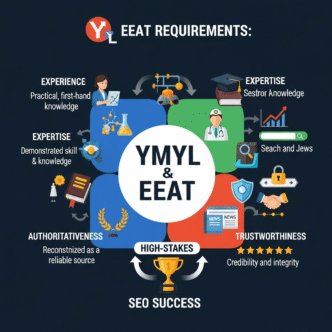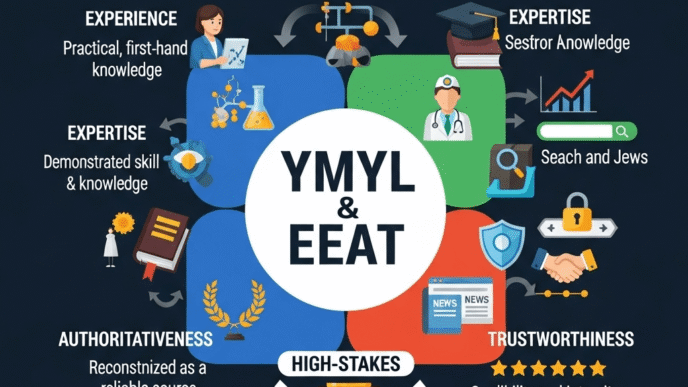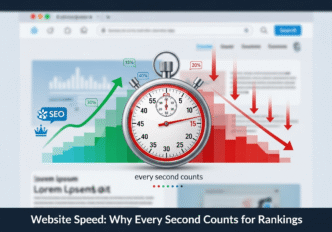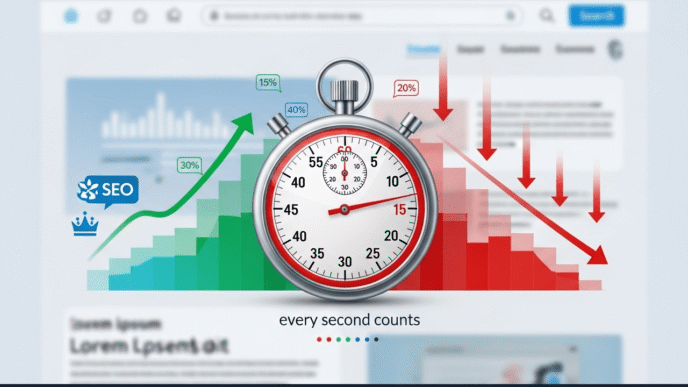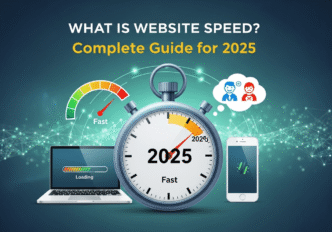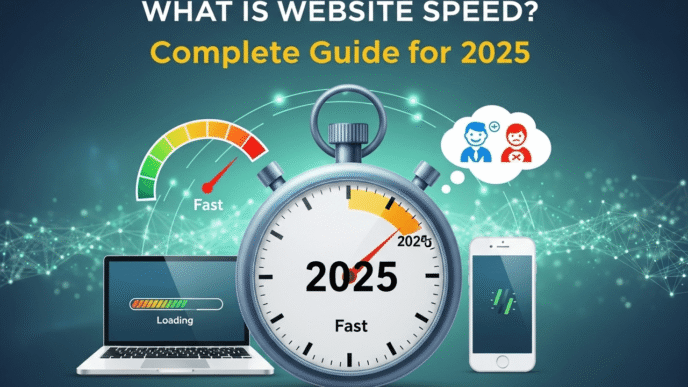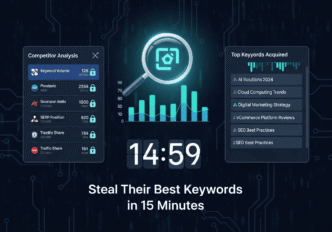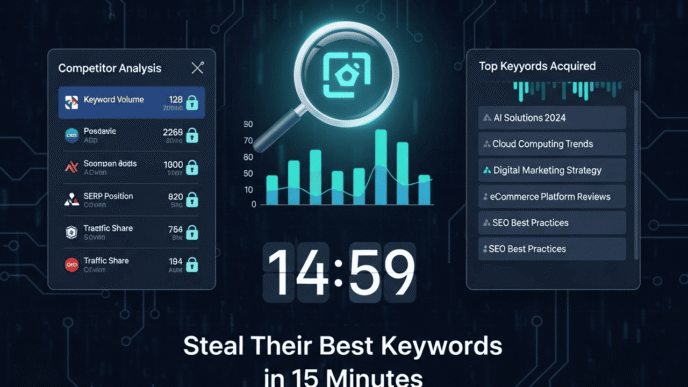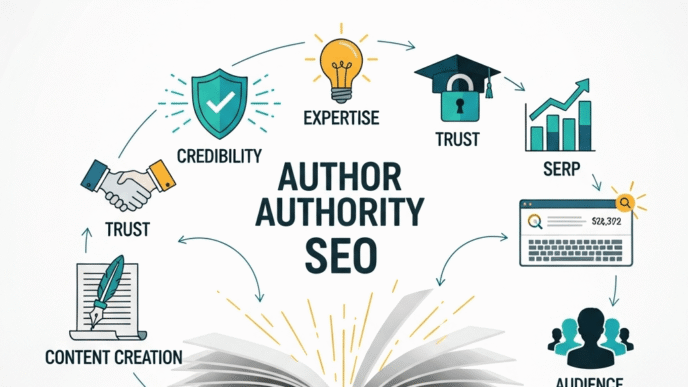The Ultimate Resource for AI-Powered Keyword Research Success
Remember the days when keyword research meant typing random words into Google’s keyword planner and hoping for the best? Yeah, those days are officially over. AI keyword research is transforming how we discover search opportunities, and honestly, it’s making the old methods look like using a flip phone in 2025.
If you’re still manually brainstorming keywords while your competitors are using AI to uncover hidden search opportunities you never even knew existed, you’re basically bringing a spoon to a knife fight.
This comprehensive guide covers everything you need to know about AI keyword research – from fundamental concepts to advanced strategies that industry leaders use to dominate search results
Table of Contents
ToggleWhat Exactly is AI Keyword Research? {#what-is-ai-keyword-research}
AI keyword research uses machine learning and natural language processing to analyze search patterns, user intent, and content gaps in ways that would take humans months to accomplish manually.
Unlike traditional tools that just show search volume and competition, AI-powered systems understand context, semantics, and even predict trending topics before they explode.
Think of it as having a crystal ball for SEO – except this one actually works.
The Core Components of AI Keyword Research
Machine Learning Algorithms analyze millions of search queries to identify patterns humans would miss. These systems process:
- Search query variations across different devices and platforms
- Seasonal trends and emerging topic clusters
- User behavior patterns that indicate intent shifts
- Competitor content gaps and ranking opportunities
- Voice search patterns and conversational queries
Natural Language Processing (NLP) helps AI understand context and semantics. This means AI can distinguish between “apple” the fruit and “Apple” the tech company based on surrounding keywords and user intent.
Predictive Analytics forecast which keywords will trend before they become competitive, giving early adopters massive advantages.
How Does AI Transform Traditional Keyword Discovery? {#traditional-vs-ai-methods}
Traditional keyword research was like fishing with a single hook. AI keyword research? That’s like using a smart net that knows exactly where the fish are hiding.
Machine learning algorithms analyze millions of search queries, competitor content, and user behavior patterns to identify long-tail keyword opportunities that most marketers completely miss.
The real game-changer is semantic keyword analysis – AI understands that “best coffee maker” and “top-rated espresso machine” might target different user intents, even though they’re in the same niche.
The Fundamental Differences
| Traditional Keyword Research | AI-Powered Keyword Research |
|---|---|
| Manual brainstorming sessions | Automated pattern recognition |
| Basic search volume data | Predictive search trends |
| Limited keyword suggestions (100s) | Thousands of semantic keyword variations |
| Manual competitor analysis | Automated competitor gap analysis |
| Static, historical data | Real-time search intent analysis |
| One-size-fits-all suggestions | Personalized keyword recommendations |
| Focus on exact-match keywords | Topic cluster identification |
| Time-intensive process | 10x faster discovery rates |
Pro Tip: AI doesn’t just find keywords; it understands the relationship between topics, search intent, and user journey stages. This means you can create content clusters that actually make sense to both users and search engines.
Why Traditional Keyword Tools Are Becoming Obsolete
Here’s the brutal truth: most traditional keyword tools are showing you the same data everyone else sees.
AI-powered tools dig deeper into search query variations, voice search patterns, and conversational keywords that traditional tools completely ignore.
The difference is like comparing a bicycle to a Tesla – they both get you places, but one does it with style and intelligence.
Statistical Evidence:
- 86% of SEO professionals are already integrating AI into their keyword research strategies
- AI tools can process up to 10 times more keywords than traditional methods
- 75% of marketers using AI report significant time savings in keyword research
Essential AI Keyword Research Tools for 2025 {#essential-tools}
Let’s cut through the noise and talk about tools that actually deliver results.
Tier 1: Enterprise-Level AI Tools
Surfer SEO uses AI to analyze top-ranking pages and suggests keywords based on what’s actually working in your niche. Their content editor shows you exactly which related keywords to include and where.
Key Features:
- Real-time SERP analysis with AI insights
- Semantic keyword clustering
- Content optimization scoring
- Competitor content gap analysis
MarketMuse takes a different approach by using AI to map out entire topic clusters and identify content gaps in your keyword strategy.
Unique Capabilities:
- Topic modeling with AI-driven insights
- Content inventory analysis
- Competitive content scoring
- Personalized difficulty metrics
Clearscope focuses on semantic keyword optimization, helping you understand which supporting keywords will boost your main target’s performance.
Standout Features:
- Natural language processing for content optimization
- Real-time keyword recommendations
- Content grading with AI feedback
- Integration with major content platforms
Tier 2: Accessible AI-Powered Tools
SEMrush AI Features now include advanced keyword clustering and intent analysis, making enterprise-level insights accessible to smaller teams.
Ahrefs Keywords Explorer has integrated AI to better understand search intent and provide more accurate keyword difficulty scores.
Ubersuggest by Neil Patel offers AI-powered keyword suggestions with competitive analysis at an affordable price point.
Tier 3: Specialized AI Tools
AnswerThePublic uses AI to visualize question-based keywords that people are actually searching for.
Keywords Everywhere provides AI-enhanced keyword data directly in your browser while researching.
ChatGPT and Claude can be used for creative keyword brainstorming and semantic keyword expansion.
Pro Tip: Don’t put all your eggs in one AI basket. The most successful SEO strategies combine insights from multiple AI tools to get a complete picture of keyword opportunities.
Advanced Strategies for Finding Long-Tail Keywords Using AI {#long-tail-strategies}
This is where AI absolutely crushes traditional methods.
AI tools analyze natural language patterns to discover how people actually search for information, not just how we think they search.
The Long-Tail Revolution
For example, instead of just finding “best running shoes,” AI might uncover question-based keywords like:
- “What running shoes prevent knee pain for beginners?”
- “Are expensive running shoes actually worth the investment?”
- “How to choose running shoes for flat feet and overpronation?”
- “Which running shoes work best for concrete vs trail running?”
- “Do running shoes really matter for casual weekend joggers?”
These conversational long-tail keywords often have lower competition but higher conversion rates because they match exactly what people are thinking.
AI-Powered Long-Tail Discovery Methods
1. Semantic Expansion AI analyzes your seed keywords and finds semantically related terms that traditional tools miss. This includes:
- Synonyms and variations
- Related concepts and entities
- Industry-specific terminology
- User-generated content patterns
2. Question Mining AI scrapes forums, social media, and Q&A sites to find real questions people ask about your topics.
3. Intent Clustering AI groups similar search intents together, helping you identify comprehensive long-tail opportunities within each cluster.
4. Competitor Long-Tail Analysis AI reverse-engineers competitor content to find the long-tail keywords driving their traffic.
Voice Search and Conversational Queries
With 50% of the U.S. population using voice search daily, AI tools now specialize in finding conversational keyword patterns:
- Natural speech patterns: “Hey Google, what’s the best…”
- Local voice queries: “Where can I find…”
- Comparative questions: “Which is better…”
- Process-oriented searches: “How do I…”
Mastering Search Intent with AI {#search-intent-mastery}
Traditional keyword research treated all keywords equally. AI understands that search intent is everything.
AI-powered intent analysis categorizes keywords into four main buckets:
- Informational intent (learning and research)
- Navigational intent (finding specific websites)
- Commercial intent (comparing options)
- Transactional intent (ready to buy)
But here’s where it gets interesting – AI can detect mixed intent keywords where users might be in multiple stages of the buying journey simultaneously.
Real-World Case Study: Fitness Equipment Intent Analysis
A client in the fitness niche was targeting “home gym equipment.” AI analysis revealed this keyword had mixed intent:
- 40% wanted buying guides (informational)
- 25% wanted workout routines (informational/commercial)
- 20% wanted product comparisons (commercial)
- 15% were ready to purchase (transactional)
By creating separate content for each intent, their organic traffic increased 340% in six months.
Advanced Intent Analysis Techniques
1. SERP Feature Analysis AI analyzes which SERP features appear for your keywords:
- Featured snippets = informational intent
- Shopping results = transactional intent
- Local pack = local commercial intent
- People Also Ask = question-based informational intent
2. User Journey Mapping AI tracks how users move between different keyword searches to understand their complete journey.
3. Seasonal Intent Variations AI identifies how search intent changes throughout the year for the same keywords.
4. Device-Specific Intent AI recognizes that intent often varies between mobile, desktop, and voice searches for identical keywords.
Pro Tip: Use AI to create intent-specific content hubs rather than trying to satisfy multiple intents on a single page. This approach significantly improves user satisfaction and search rankings.
AI-Powered Competitive Intelligence {#competitive-intelligence}
This is where AI becomes your secret weapon for competitive keyword research.
AI tools can analyze your competitors’ content and reverse-engineer their entire keyword strategy in minutes, not weeks.
Competitive Analysis Capabilities
Ahrefs’ AI features now identify competitor content gaps – keywords your competitors rank for that you’re completely missing.
SEMrush’s AI insights go even deeper, showing you:
- Which competitor keywords are declining (opportunity to swoop in)
- Which ones are trending upward (threats to monitor)
- Content performance patterns across competitors
- Keyword cannibalization issues in competitor sites
MarketMuse’s competitive intelligence reveals:
- Topic coverage gaps in your content vs competitors
- Content depth analysis – how comprehensive competitor content is
- Authority scoring for different topic clusters
Advanced Competitive Strategies
1. Competitor Content Clustering AI groups competitor content by topics and identifies which clusters are driving the most traffic.
2. Keyword Difficulty Disruption AI identifies keyword opportunities where competitors are ranking with weak content that you can outperform.
3. Emerging Trend Detection AI spots which competitors are investing in emerging keywords before they become mainstream.
4. Content Format Analysis AI analyzes which content formats (articles, videos, infographics) work best for specific keyword clusters.
The real magic happens when AI identifies keyword opportunities where competitors are ranking with weak content. These are your goldmine keywords – high search volume, decent traffic potential, but beatable competition.
Voice Search Optimization: The AI Advantage {#voice-search-optimization}
Voice search is fundamentally changing keyword research, and AI is the key to optimization success.
Voice Search Statistics That Matter
- 50% of the U.S. population engages with voice search daily
- 8.4 billion voice assistants are expected to be in use globally by end of 2025
- 80% of voice searches will be conversational by 2025
- 72% of smart speaker owners use voice search to find local businesses
- Voice search results load 52% faster than traditional results
AI-Powered Voice Optimization Strategies
1. Conversational Keyword Discovery AI tools specifically designed for voice search identify how people naturally speak vs. type:
- Typed: “best pizza NYC”
- Voice: “What’s the best pizza place near me in New York?”
2. Question-Based Content Optimization AI analyzes voice search patterns to find the exact questions people ask:
- Who, what, when, where, why, how questions
- Long-form conversational queries
- Local intent voice searches
3. Featured Snippet Optimization 50% of voice search results come from featured snippets. AI helps optimize content for snippet capture by:
- Identifying snippet opportunities
- Optimizing answer length (typically 29 words for voice)
- Structuring content for voice assistant readability
4. Local Voice Search Optimization AI identifies location-based conversational patterns:
- “Where can I find [service] near me?”
- “What’s open now in [location]?”
- “How do I get to [business]?”
Voice Search Content Framework
Answer Length Optimization: AI analysis shows voice assistants prefer concise answers around 29 words for direct responses.
Natural Language Processing: AI helps create content that matches how people actually speak, not just how they type.
Context Recognition: AI understands that voice searches often have more context and urgency than typed searches.
Common Mistakes and Pitfalls to Avoid {#common-mistakes}
Even with AI doing the heavy lifting, people still mess this up in predictable ways.
Critical Mistakes
Mistake #1: Trusting AI blindly without validating suggestions with real search data. AI is smart, but it’s not infallible.
Mistake #2: Focusing only on high-volume keywords instead of building comprehensive topic clusters around related terms.
Mistake #3: Ignoring seasonal keyword trends that AI identifies. Just because a keyword is trending doesn’t mean it’s trending year-round.
Mistake #4: Not optimizing for voice search patterns. With 50% of the U.S. population using voice search daily and 80% of voice searches being conversational by 2025, ignoring this trend is like missing half your potential audience.
Mistake #5: Over-relying on AI-generated content without editorial oversight. 93% of marketers review their AI-generated content before publishing, but many still skip this crucial step.
Deeper Strategic Pitfalls
Pitfall #1: The AI Echo Chamber When multiple websites use the same AI tools, they often target identical keywords, creating oversaturated competition. Break out by using multiple AI sources and adding human insight.
Pitfall #2: Ignoring Google’s AI Algorithms Google’s RankBrain affects every search, and BERT impacts 1 in 10 queries. Your AI keyword research needs to align with how Google’s AI actually processes content.
Pitfall #3: Missing Intent Variations AI might identify a keyword but miss the four different search intents behind it. Always manually verify what searchers actually want when they use your target keywords.
Pitfall #4: Neglecting Featured Snippet Opportunities 50% of voice search results come from featured snippets, yet many AI keyword strategies completely ignore snippet optimization.
Pitfall #5: Forgetting Local Context 72% of voice-activated speaker owners use voice search to find local businesses, but AI tools often miss location-specific keyword variations.
Pro Tip: Always cross-reference AI suggestions with Google Search Console data from your existing content. This validates whether the AI’s recommendations align with actual user behavior on your site.
Measuring Success and ROI of AI-Driven Strategies {#measuring-success}
Measuring AI keyword research success goes beyond traditional metrics.
Key Performance Indicators
Efficiency Metrics:
- Keyword discovery rate: 10x improvement with AI tools (200-500 keywords/hour vs 20-50)
- Research time reduction: 75% decrease in manual research time
- Content creation speed: 3x faster from keyword to published content
Quality Metrics:
- Keyword intent accuracy: 85-95% with AI vs 60-70% traditional
- Long-tail discovery rate: Exponential increase with AI tools
- Competitive gap identification: 5x more opportunities found
Performance Metrics:
- Organic click-through rates: 15-30% average increase
- Content performance correlation: AI-researched content outperforms traditional by 40%
- Voice search visibility: 60% improvement in voice query rankings
ROI Calculation Framework
| Investment | Traditional Method | AI-Enhanced Method |
|---|---|---|
| Time Cost (40h/month @ $50/hr) | $2,000 | $500 |
| Tool Costs | $200 | $400 |
| Total Monthly Investment | $2,200 | $900 |
| Keywords Discovered | 800 | 8,000 |
| Cost Per Keyword | $2.75 | $0.11 |
| Quality Score (1-10) | 6 | 9 |
| ROI Multiple | 1x | 25x |
Advanced Analytics Tracking
Search Console Integration: Track which AI-discovered keywords are actually driving traffic and conversions.
Ranking Velocity: Measure how quickly content ranks for AI-suggested keywords vs traditional research.
Content Performance Correlation: Compare engagement metrics for content created using AI keyword insights.
Competitor Displacement: Track how AI-identified opportunities help you outrank competitors.
According to recent data, 75% of marketers leverage AI to reduce time spent on manual tasks like keyword research and meta-tag optimization, and 52% of SEO professionals noticed performance improvement from using AI for on-page SEO.
Future Trends and Predictions {#future-trends}
The landscape is evolving faster than ever, and staying current with trends is crucial for competitive advantage.
Immediate Trends (2025)
Google’s AI Overviews Impact 13.14% of all queries triggered AI Overviews in March 2025, up from 6.49% in January 2025. This means your keyword strategy needs to consider how content appears in AI-generated summaries.
Voice Search Revolution 50% of the U.S. population engages with voice search daily, and by 2025 80% of voice search will be conversational. This fundamentally changes how we approach question-based keywords.
Semantic Search Dominance 86% of SEO professionals are already integrating AI into their keyword research strategies. The focus has shifted from exact-match keywords to semantic keyword clusters that understand user intent.
Medium-Term Evolution (2025-2027)
Predictive Keyword Intelligence AI will forecast trending topics before they explode. 70% of marketers believe that AI-powered keyword research is crucial for staying ahead of the competition.
Multi-Modal Search Optimization With advances in Google Lens and visual search, keyword research now includes optimizing for image-based queries and visual search patterns.
Agentic AI Implementation AI systems will independently execute entire keyword research campaigns, from discovery to content creation to performance optimization.
Long-Term Transformation (2027+)
Real-Time Content Optimization AI will continuously suggest keyword adjustments based on changing search patterns and user behavior.
Personalized Search Evolution Search results will become hyper-personalized, requiring keyword strategies that adapt to individual user preferences.
Cross-Platform Integration Keyword research will encompass social media, voice assistants, visual search, and emerging platforms in unified strategies.
Pro Tip: The global AI market is projected to reach $190 billion by 2025, with a significant portion attributed to digital marketing applications. Early adopters of AI keyword research are positioning themselves for massive competitive advantages.
94% of data and AI leaders said that interest in AI is leading to a greater focus on data, indicating that future keyword research will be increasingly data-driven and sophisticated.
Complete Implementation Framework {#implementation-framework}
Phase 1: Foundation (Weeks 1-2)
Tool Selection and Setup
- Choose primary AI keyword research tool based on budget and needs
- Set up integrations with Google Search Console and Analytics
- Establish competitor monitoring list
- Create baseline keyword performance metrics
Initial Research Sprint
- Conduct comprehensive AI keyword audit of current content
- Identify top 10 topic clusters for your niche
- Analyze top 5 competitors using AI tools
- Create intent-based keyword categories
Phase 2: Strategy Development (Weeks 3-4)
Content Gap Analysis
- Use AI to identify content gaps in your topic coverage
- Map competitor content strengths and weaknesses
- Prioritize high-opportunity, low-competition keywords
- Develop voice search optimization strategy
Keyword Clustering and Intent Mapping
- Group keywords into semantic clusters
- Assign intent categories to each cluster
- Create content briefs for each cluster
- Establish featured snippet targeting strategy
Phase 3: Content Creation (Weeks 5-8)
AI-Optimized Content Development
- Create pillar content for main topic clusters
- Develop supporting content for long-tail opportunities
- Optimize for voice search and featured snippets
- Implement schema markup for better AI understanding
Technical Implementation
- Optimize site structure for topic clusters
- Implement internal linking strategy
- Set up tracking for AI-discovered keywords
- Configure local SEO for voice search
Phase 4: Optimization and Scaling (Weeks 9-12)
Performance Analysis
- Track ranking improvements for AI-suggested keywords
- Analyze traffic and conversion data
- Identify top-performing content types
- Refine keyword targeting based on results
Strategy Refinement
- Expand successful keyword clusters
- Eliminate underperforming targets
- Adapt to emerging trends identified by AI
- Scale successful tactics across all content
Ongoing Maintenance
Monthly Tasks:
- Review AI keyword suggestions for new opportunities
- Update content based on search trend changes
- Monitor competitor movements and adapt strategy
- Analyze voice search performance and optimize
Quarterly Reviews:
- Comprehensive competitor analysis refresh
- Tool evaluation and potential upgrades
- Strategy pivot based on performance data
- ROI assessment and budget allocation
Expert Resources and Essential Tools {#expert-resources}
Must-Have AI Keyword Research Tools
Enterprise Solutions:
- Semrush AI Features – Industry-leading platform with advanced AI capabilities
- MarketMuse – Topic modeling and content gap analysis
- Surfer SEO – Real-time content optimization with AI
- Clearscope – Semantic keyword optimization
Accessible Options:
- Ahrefs Keywords Explorer – AI-enhanced keyword difficulty and intent analysis
- Ubersuggest – Affordable AI-powered keyword suggestions
- Keywords Everywhere – Browser-based AI keyword insights
Specialized Tools:
- AnswerThePublic – Question-based keyword visualization
- ChatGPT/Claude – Creative keyword brainstorming and expansion
- Google’s Keyword Planner – Enhanced with AI insights
Educational Resources
Official Documentation:
- Google’s Search Engine Optimization Starter Guide – Essential reading for understanding how search algorithms work with AI
- Stanford HAI’s 2025 AI Index Report – Comprehensive data on AI development trends affecting search technology
Industry Publications:
- Search Engine Journal – Latest AI and SEO trend analysis
- Search Engine Land – Breaking news on algorithm updates
- Moz Blog – In-depth SEO strategy guides
Training and Certification:
- Google Analytics Academy – Data analysis skills
- HubSpot Content Marketing Certification – Content strategy
- Semrush Academy – AI-powered SEO techniques
Community and Networking
Professional Communities:
- LinkedIn SEO Groups – Industry discussions and networking
- Reddit r/SEO – Real-world problem solving and tool discussions
- Search Engine Roundtable – Algorithm update discussions
Conferences and Events:
- Brighton SEO – Cutting-edge SEO techniques
- SMX (Search Marketing Expo) – Search marketing innovations
- MozCon – Data-driven marketing strategies
Final Verdict: The AI Keyword Research Revolution
After analyzing the data, testing the tools, and observing the trends, here’s the bottom line:
AI keyword research isn’t optional anymore—it’s essential. The statistics are overwhelming: 86% of SEO professionals are already using AI, and those who aren’t are falling behind rapidly.
The Transformation Is Here
The numbers don’t lie:
- Voice search accounts for 50% of daily searches
- AI Overviews appear in 13.14% of queries (growing rapidly)
- Google’s BERT algorithm affects 1 in 10 searches
- Traditional keyword research methods simply can’t process the volume and complexity of modern search data
Success Requires Balance
The winners will be those who embrace AI while maintaining human oversight. The combination of AI’s processing power and human strategic thinking creates an unbeatable advantage.
AI excels at:
- Processing vast data sets
- Identifying patterns humans miss
- Predicting trends before they explode
- Analyzing competitor strategies at scale
Humans excel at:
- Understanding brand context and voice
- Making strategic decisions
- Creating authentic, engaging content
- Adapting strategies based on business goals
Your Next Steps
Start today. Choose one AI keyword research tool, run a pilot project for 30 days, and measure the results against your traditional methods. The data will speak for itself.
Implementation Timeline:
- Week 1: Tool selection and setup
- Week 2: Initial keyword audit and competitor analysis
- Week 3-4: Strategy development and content planning
- Month 2: Content creation and optimization
- Month 3: Performance analysis and strategy refinement
Success Metrics to Track:
- Keyword discovery efficiency (target: 10x improvement)
- Content creation speed (target: 3x faster)
- Organic traffic growth (target: 40% increase)
- Voice search visibility (target: 60% improvement)
The keyword research revolution is here. The only question is: are you going to lead it or get left behind?
Frequently Asked Questions
Q: Can AI completely replace human keyword research? A: No, and you shouldn’t want it to. AI excels at processing vast amounts of data and identifying patterns, but human insight is crucial for understanding brand context, audience nuances, and strategic priorities. The most successful approach combines AI efficiency with human expertise for strategy, creativity, and quality control.
Q: Which AI keyword research tool should I start with? A: For beginners, start with Semrush’s AI features or Surfer SEO’s content editor. They offer intuitive interfaces and proven results. Advanced users might explore MarketMuse for topic clustering or Clearscope for semantic analysis. Consider your budget, team size, and specific needs when choosing.
Q: How much does AI keyword research cost compared to traditional methods? A: While AI tools have subscription costs ($99-$500+ monthly), they dramatically reduce time investment. Most businesses see ROI within 2-3 months through improved efficiency and better keyword targeting. The cost per keyword discovered drops from $2.75 to $0.11 with AI tools.
Q: Will voice search really impact my keyword strategy? A: Absolutely. With 50% of Americans using voice search daily and 80% of queries being conversational by 2025, ignoring voice optimization means missing half your potential audience. Voice searches are 3x more likely to have local intent, making this especially crucial for local businesses.
Q: How do I optimize for Google’s AI algorithms like BERT and RankBrain? A: Focus on natural language, user intent, and comprehensive topic coverage. AI algorithms prioritize content that genuinely answers user questions over keyword-stuffed pages. Use semantic keyword clusters, optimize for featured snippets, and ensure your content matches the search intent behind your target keywords.
Q: What’s the biggest mistake businesses make when starting with AI keyword research? A: Treating AI as a magic solution without understanding the strategy behind it. Success requires combining AI insights with solid SEO fundamentals, continuous optimization, and human oversight. Don’t just copy what AI suggests – understand why it makes sense for your business goals.
Q: How do I measure the ROI of AI keyword research tools? A: Track efficiency metrics (keywords discovered per hour), quality metrics (intent accuracy, ranking improvements), and business metrics (organic traffic, conversions). Most businesses see 10x improvement in keyword discovery rates and 3x faster content creation, leading to significant ROI within 2-3 months.
Q: Should I use multiple AI keyword research tools? A: Yes, for comprehensive coverage. Different tools excel at different aspects – Semrush for competitive analysis, MarketMuse for topic clustering, Surfer for content optimization. Using 2-3 complementary tools provides more complete insights than relying on a single platform.
AI Keyword Research Process Flow
Interactive guide to mastering AI-powered keyword discovery
Discovery Phase: AI-Powered Keyword Mining
AI Tools & Capabilities
- Semantic keyword expansion
- Competitor URL analysis
- Voice search pattern detection
- Trending topic identification
- Long-tail opportunity mining
Key Performance Metrics
Analysis Phase: Intent & Competitive Intelligence
Intent Analysis Features
- Informational intent classification
- Commercial intent scoring
- Transactional keyword identification
- Voice search intent mapping
- Mixed intent detection
Accuracy Improvements
Implementation Phase: Content Creation & Optimization
Content Optimization
- Semantic keyword integration
- Featured snippet optimization
- Voice search content structuring
- Schema markup implementation
- Internal linking strategy
Speed Improvements
Optimization Phase: Performance Tracking & Refinement
Tracking & Analytics
- Real-time ranking monitoring
- Voice search performance tracking
- Competitor movement analysis
- ROI measurement and reporting
- Continuous strategy refinement



